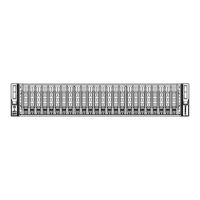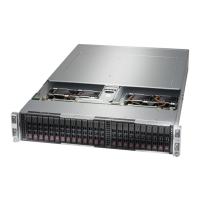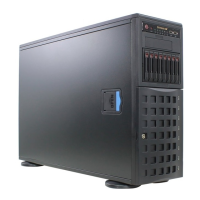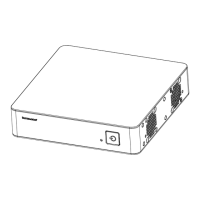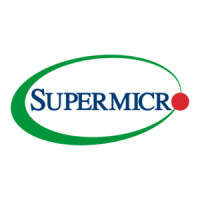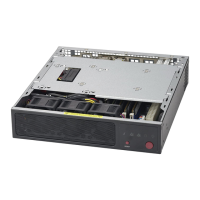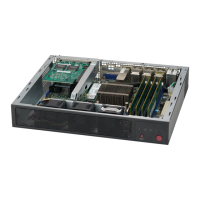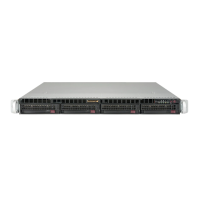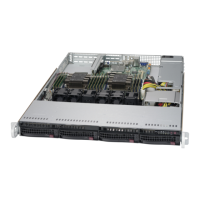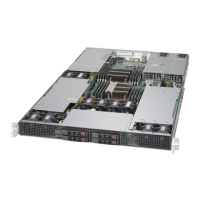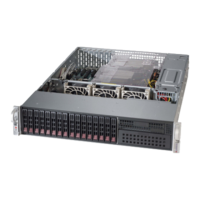Chapter 7: AMI BIOS
7-27
Serial Port for Out-of-Band Management/Windows Emergency Management
Services (EMS)
The submenu allows the user to congure Console Redirection settings to support
Out-of-Band Serial Port management.
(EMS) Console Redirection
Select Enabled to use a COM port selected by the user for EMS Console
Redirection. The options are Enabled and Disabled.
*If the item above set to Enabled, the following items will become available for
user's conguration:
EMS Console Redirection Settings (Available when EMS
Console Redirection is enabled)
Use this feature to specify how the host computer will exchange data with the client
computer, which is the remote computer used by the user.
Out-of-Band Management Port
The feature selects a serial port in a client server to be used by the Windows
Emergency Management Services (EMS) to communicate with a remote host
server. The options are COM1 (Console Redirection) and SOL (Console
Redirection).
Terminal Type
Use this feature to select the target terminal emulation type for Console
Redirection. Select VT100 to use the ASCII character set. Select VT100+ to add
color and function key support. Select ANSI to use the extended ASCII character
set. Select VT-UTF8 to use UTF8 encoding to map Unicode characters into one
or more bytes. The options are ANSI, VT100, VT100+, and VT-UTF8.
Bits Per Second
This item sets the transmission speed for a serial port used in Console
Redirection. Make sure that the same speed is used in both host computer and
the client computer. A lower transmission speed may be required for long and
busy lines. The options are 9600, 19200, 57600, and 115200 (bits per second).
Flow Control
Use this item to set the ow control for Console Redirection to prevent data
loss caused by buffer overow. Send a "Stop" signal to stop data-sending when
the receiving buffer is full. Send a "Start" signal to start data-sending when
the receiving buffer is empty. The options are None, Hardware RTS/CTS, and
Software Xon/Xoff.
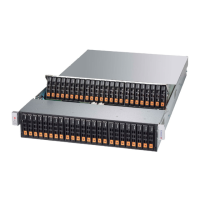
